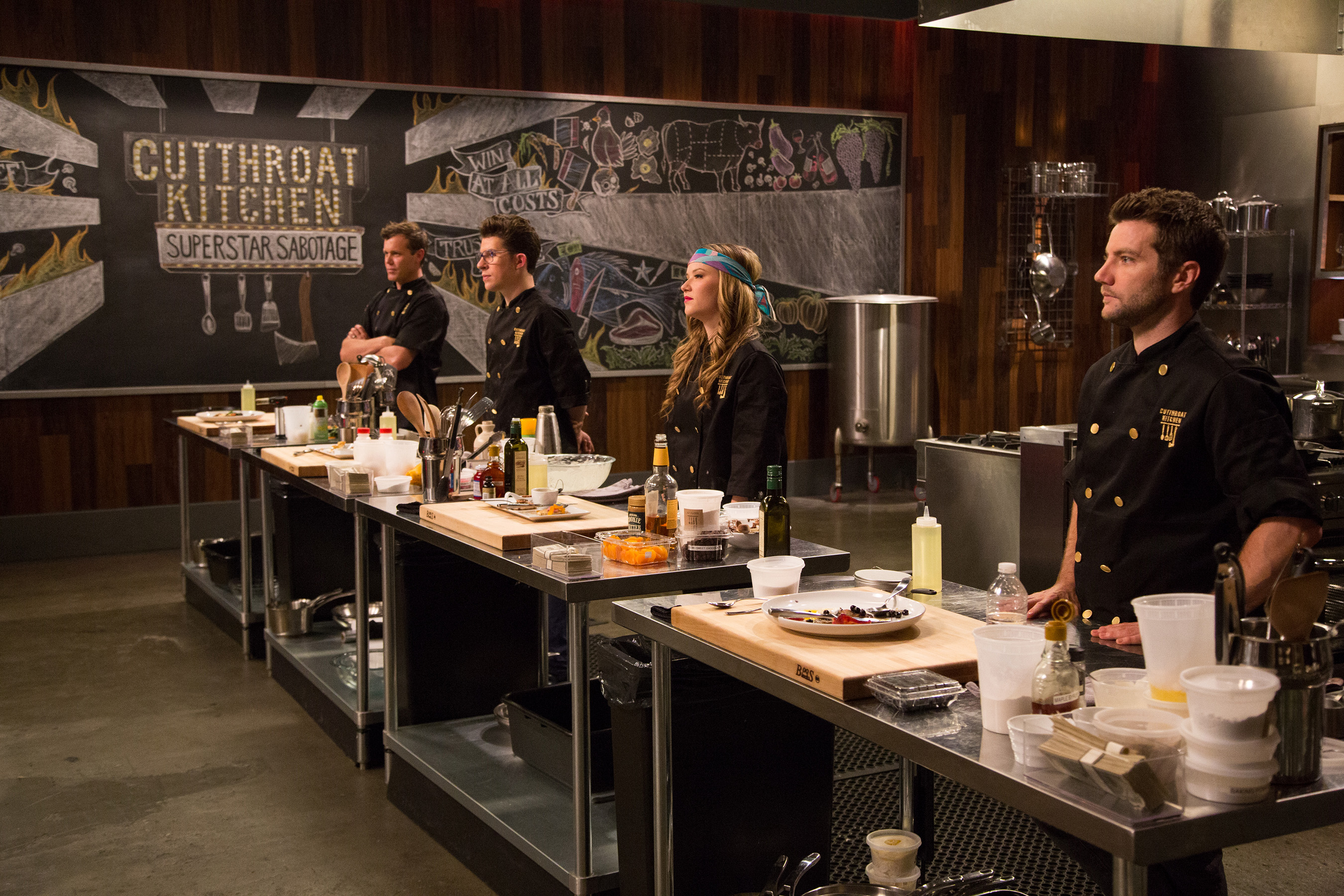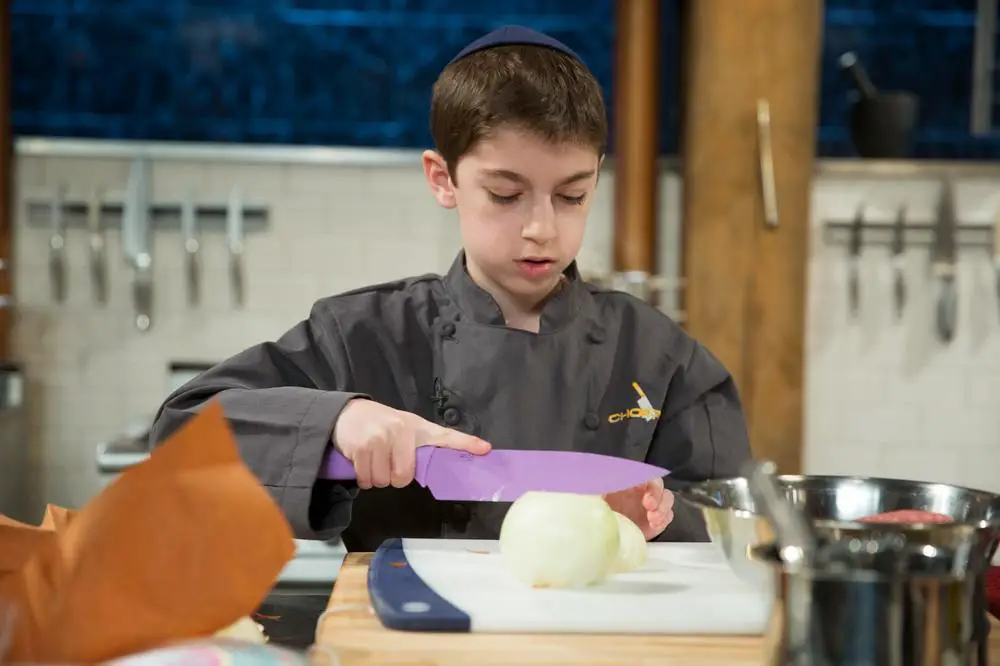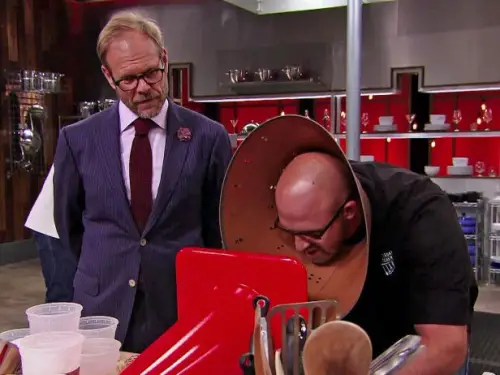My name is Heather and I’m an addict: I binge competitive cooking shows. Once every week or so I’ll sit down to watch an episode of “Cutthroat Kitchen,” and suddenly it’s 3:00am and I’m wondering why I haven’t made a tarte tatin using nothing but box wine and Oreos. But why? I struggle to make anything more complicated than ice, so why would I even care about whether or not some sous chef from San Francisco wins $20,000?
Competitive cooking programs follow a sort of recipe that makes each one of them simultaneously identical and impossible to resist. The recipe is as follows: one charismatic host, an oddly specific challenge (like making a tiramisu with aglets as the main ingredient) and a series of contestants who are all looking to win money for their ailing grandmothers.

This formula can be seen in nearly every competitive cooking show that you’ve ever binged: “Chopped,” “Guy’s Grocery Games,” “Beat Bobby Flay,” etc. Cooking becomes a background, while the shows focus on what the American people are really after: No, not that thing, you freak—competition. Think back to the last time you watched an exciting cooking show. Not that Rachel Ray crap where you actually have to learn about cooking, but a cooking show that kept your attention and forced you to watch the next episode.
Do you remember any of the dishes that were cooked? Did you learn anything that you’ll be able to work into your own meals? Of course not. What you remember is the rush you felt as that crusty white boy that had been talking shit the entire episode was eliminated in the final round by the North Korean woman who had to escape her home country at eight-years-old with her sister strapped to her back, all while using nothing but a ladle and her knowledge of how to make the world’s greatest naengmyeon.
Did it ever occur to you while righteously screaming, “Suck a dick, Brandon!” that the show had almost nothing to do with cooking?
Cooking Is a Prop
In these shows, cooking is nothing but a convenient way to tell a story. Yes, of course cooking is involved in shows where contestants face off against each other by testing their culinary prowess, but it isn’t the focus. The aim of the show isn’t to educate you about how to cook the perfect duck tartare; it’s to get you invested in a storyline.
The first five minutes of any popular cooking show are all about telling the viewer about the contestants. You’ll hear their sad backstories, their hopes and their dreams, and you’ll find out within the first three minutes who you’ll be rooting for. These are the most integral factors in the show; they’re what keeps you interested as a viewer. And they have nothing to do with any sort of dicing or boiling, because that isn’t what’s important.
There’s a reason that the amount of competitive shows on the Food Network octupled in a 9-year period—the shit sells. Who wants to listen to the living embodiment of mayonnaise tell them how to baste a turkey? Nobody. Who wants to watch a compelling story of how a food truck chef wins the money to import his dying puppy from Israel? Since 80 percent of Americans watch cooking shows, I’d say damn near everybody.

It isn’t that Americans hate cooking, though. If obesity rates are any indicator, then Americans love learning how to cook unhealthy food in ten minutes or less. But the one thing that they love more? Asshole judges.
It’s All About the Judges
The only memorable part of “American Idol” (other than Kelly Clarkson) was Simon Cowell. That British bastard was the only reason that show became as popular as it did; you can only listen to so many mediocre renditions of “My Heart Will Go On.”
Just like “American Idol,” the competitive scene on the Food Network is all about amping people up with asshole commentary from respected judges. After watching someone make lamb chops with a reduction sauce made of tears, viewers get infuriated when that chef is inevitably sent home because said tears weren’t creamy enough. That pisses viewers off and, much like sex, reality television is all the better when you’re angry.
Anger makes people get invested in the storyline, even if they hate every single person they’re watching. It compels people, and each judge that spits on the hopes of some smalltime chef is hooking another viewer through to the next episode.
Nice people are lovely and sweet, but they’re also fundamentally boring to watch. Mean judges make TV interesting. They’re why “Chopped” is on its 31st season, and “Miss Rap Supreme” was doomed to fail before it aired. After all, if America has proven anything, it’s that they love to hear the opinions of massive douchebags.














[…] may be fuel, but it’s also something to enjoy. Cooking shouldn’t have to be stressful or time-consuming. Cooking should, in fact, be accessible for […]